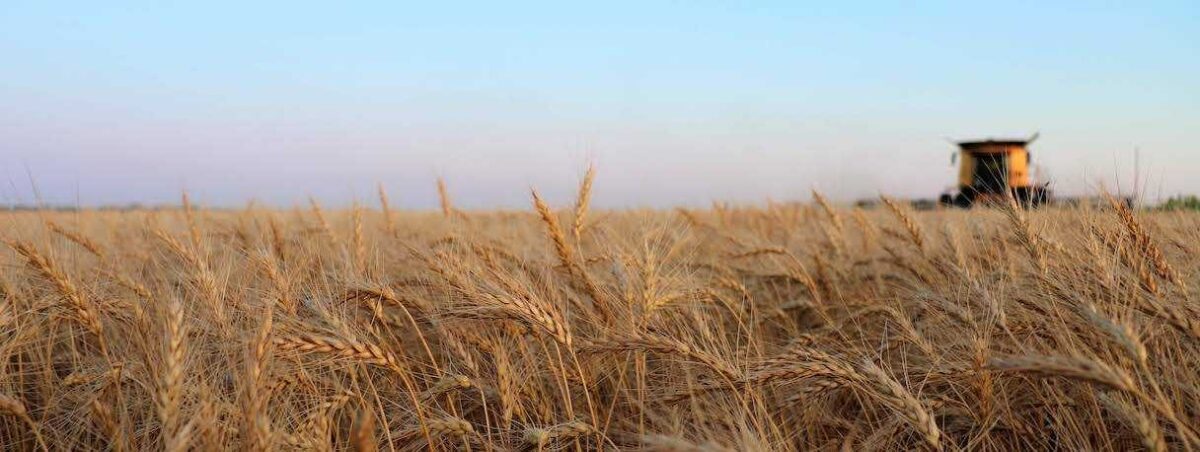Innovation in the spotlight at National Grain Week


As a member of the Grain Growers of Canada (GGC), Manitoba Crop Alliance (MCA) participated in National Grain Week March 27-29 in Ottawa, which included nearly 20 meetings and roundtable discussions with MPs and senators.
Attendees included Agriculture Marie-Claude Bibeau, MP Brian May, MP Marie LaLonde, MP Blaine Calkins, MP Chandra Arya, Minister of Veterans Affairs Lawrence MacAulay, MP Ted Falk, Senator Paula Simons, MP Yves Parton, MP Alistair MacGregor and MP John Barlow.

Sally Parsonage, a delegate on MCA’s sunflower crop committee, and Jonothan Hodson, MCA vice-chair and corn committee delegate, represented MCA at this year’s event. Hodson was a returning participant, while Parsonage was attending for the first time.
During the opening reception, MP Francis Drouin, parliamentary secretary to the minister of agriculture, addressed attendees. The next day participants attended an overview of key highlights from the 2023 budget and witnessed the historic passage of Bill C-234, an Act to Amend the Greenhouse Gas Pollution Pricing Act.
“Before the last election in 2021, I was fortunate enough to be a presenter to the Standing Committee on Agriculture on Bill C-206, which was trying to accomplish the same changes as C-234,” Hodson says. “That bill was lost when the election was called. It was personally rewarding to be in Ottawa when C-234 passed this time around.”
Both Parsonage and Hodson spent much of their time in Ottawa talking about current issues facing farmers and supporting GGC’s preliminary snapshot of the Roadmap to 2050 report, which emphasized the significance of trade, transportation and innovation.
“Broadly speaking, most of my conversations with government officials involved various aspects of the roadmap to net-zero emissions by 2050,” Hodson says.
“I talked a lot about the effects of innovation on the farm level, using the past to demonstrate the value of government and farmer investments in various forms of innovation, and looking to the future return on further investments.”
The importance of science-based policy was communicated repeatedly.
“In order to achieve environmental goals, farmers need access to innovative varieties, practices and tools, not mandated targets,” Parsonage says.
“Forcing Canadian grain farmers to adopt practices that are less productive may lower Canadian emissions, but the shortfall in production will be made up by other regions that may have less stringent environmental requirements.”
Parsonage adds Grain Week was an important chance for farmers to have direct contact with decision makers from across the country.
“I found they were genuinely interested to learn directly from farmers about the issues we face, but in some cases have had very little opportunity to do so,” she says. “While it’s tempting to be cynical about the political process, we will only limit our industry if we don’t make these opportunities happen for ourselves.”
Experiencing firsthand the disconnect many people involved in the political process have from agriculture was a concern for Parsonage. But on a positive note, she says, most people she spoke with were curious and open to learning more.
“Explaining the on-farm cost and benefits of adopting cutting edge equipment – like retrofitting a sprayer with sensors to spot spray weeds, for example – helped bring some perspective to our conversations.”
This year was a reminder for Hodson that sometimes when these decisions are made a long way from the farm, how they will impact the farm is not taken into consideration.
“Sally’s focus on sunflowers, a smaller acreage crop, was well received. She was able to relate real world consequences (of policy decisions) on a crop that is not widely known in all ag circles in Canada, but is an important option in Manitoba,” he says.”
“That was a reminder for me how important it is for farmers to explain how these decisions and consequences can affect their operation.”
At the end of the day, both Parsonage and Hodson saw National Grain Week as a valuable opportunity to share their lived experience and send an important message on behalf of the Canadian agriculture industry.
“As farmers, we have to make sure we are speaking up for ourselves to the people who are responsible for making the decisions that are going to affect our next five, 10, 50 years,” Parsonage says. “Talking to each other only goes so far, we have to be proactive to get our message out to the public instead of waiting to react.”
Hodson adds that “as farmers in Canada, we need to remember, we produce grain on some of the most sustainable farms in the world and we have never been afraid of change. Never be afraid to tell your story and to be proud of your accomplishments.”
